It seems that I’m growing in my sideline of rehabbing lower-income multi family homes and holding them as rental properties. Now at 20 units, full time employee. I have partnered up with a source of funding which will likely expand what I am doing and I have some miscellaneous questions – I know Tim Mooney has been active in this sort of thing, and maybe some others:
1. I have always used copper plumbing, never liked the cpvc. But the cost is now becoming a factor along with the skill to install it. Any good sources on proper installation? I remember the fhb article some time ago that said to sand the edges.
2. I am using cheap-o fridges, stoves, and electric water heaters. My quantity is starting to build up. Most of the good deals I come across in buildings involve a property with pretty serious issues and no appliances. Thoughts on reliability/better pricing?
3. So far I have been gut-and-rehab, new roof, windows, siding, electrical, plumbing, dw, int finish. My projects to date have involved new electrical services and water service so I know to-date exactly what I have. But I’m looking at more buildings now that aren’t gut-and-rehab, but maybe the existing electric and plumbing stays with some tweaks. That scares me, particularly the electric. These are mostly older duplexes/quads I’m coming across, 1920’s etc. I’m pretty familiar with period construction techniques. Would someone generally replace all the electric if it was say 50’s before the last time it was updated? Even if you might be able to keep it? liability is a worry.
4. I came across knob-and-tube the first time recently. I don’t really understand it – I thought it was bare wire under tension in a wall. This was insulated single wire, which I assumed was hot, and I didn’t see a neutral leg. The fixture was torn out so I couldn’t trace it.
5. Recommendation on rental carpeting?
6. I have been in construction all my life. I think I’m pretty good at judging the structural soundness of a building. I had someone notice a structural flaw in a building I purchased some time ago (a rotten series of floor joists under a narrow crawl) that I totally missed. It worried me about my true competency in judging what I’m getting into on as-is cash buildings.
7. Any other thoughts?
tia,
remodeler




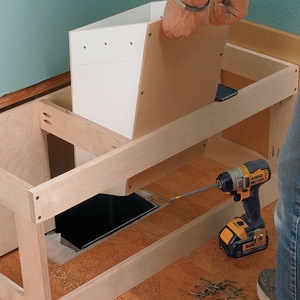
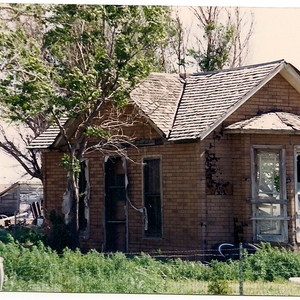




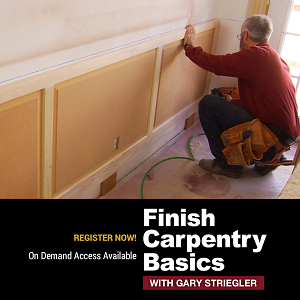




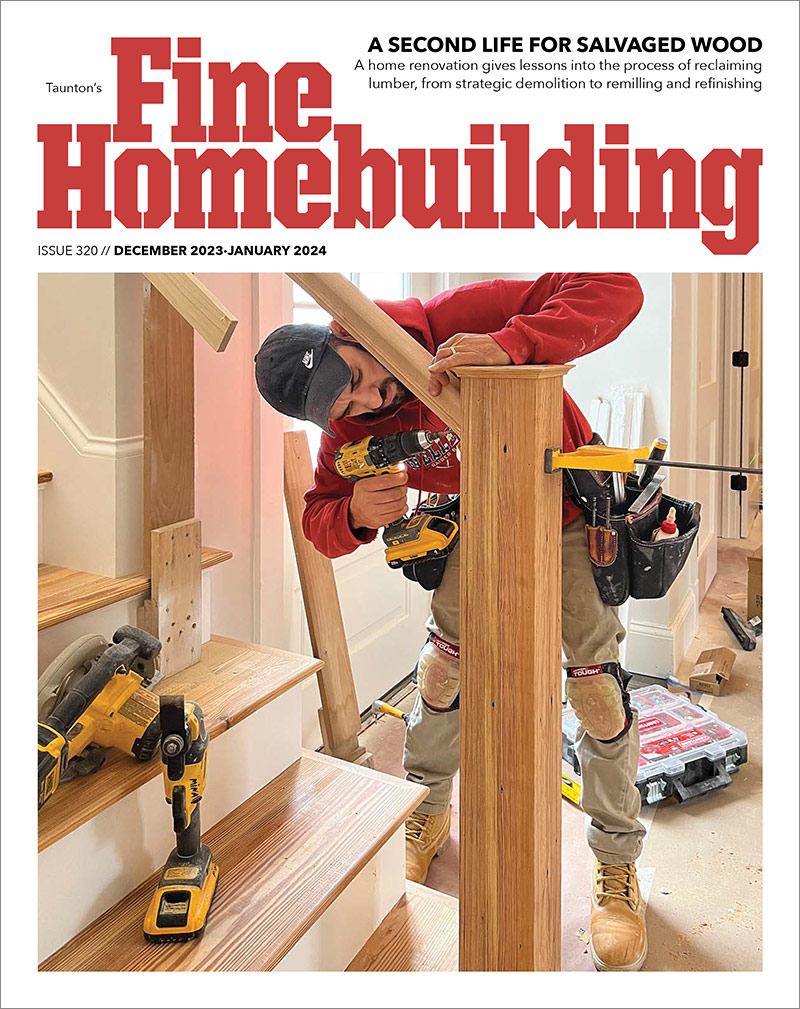
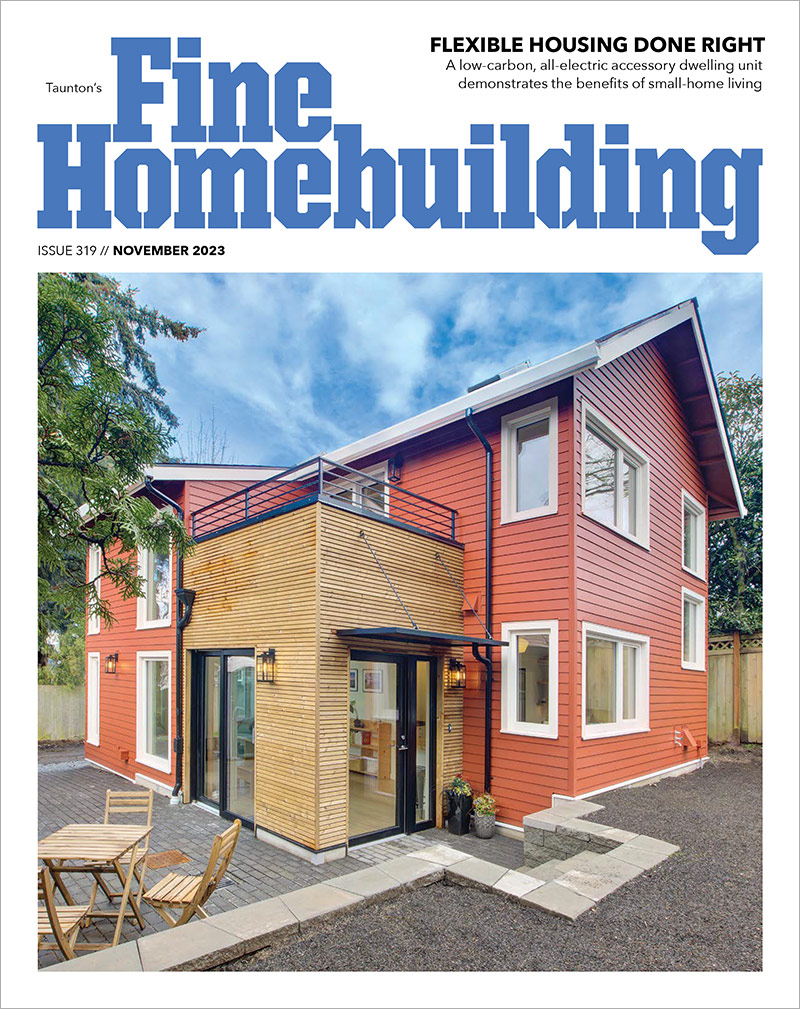

Replies
Remodeler,
As someone that has been more on the property management side with a strong capabilities towards construction, here are my thoughts:
1. I prefer copper, period. There are some really good books on plumbing that can be purchased through Tauton and with your existing knowledge, this should get you up to speed. Another way to learn, that has worked for me is to hire a plumber, who really enjoys his trade and enjoys teaching it to others. I met a master plumber who replumed a house I owned and there was nothing he enjoyed more than teaching anyone interested in learning. Needless to say, I learned alot (he got some free labor too). I also learned that when something was over my head, that it was time to call him again.
2. In the past, I have experienced with "pre-owned" applicances from local shops that deal with them. I have had good and bad experiences with both, depending upon whether the appliance in question was constructed with parts from other appliances. I've been burned enough to know that purchasing new quality name applicances (typicall the lower end models of that marque) is the safest bet.
3 & 4. It really depends. The whole system would need to be assessed, preferable by an electriction. There are older systems that are just fine and should not need to be replaced provided that they have not been modified. Of course, if the walls are open already. . .
5. When it comes to common areas, spend it bit more on carpet. I've had some good grade carpet that has lasted almost 20 years and is just starting to show it age. when it comes to inside the actual units, it depends upon what sort of tenants you are renting to. If you expect tenants to remain for only a couple of years or less and chances are they trash your place, you are better off with a cheaper grade carpet and plan on replacing it more often.
6. I would not beat yourself over this too much. Happens to the best of us. Consider it the cost of doing business. Be more concerned about the stuff you might find, of which there was no manner you could have inspected. . .
Best of luck,
Tark
Tia,
Been doing the same for 20 years. My thoughts are:
1. Consider switching to pex. Same price for material, a third of the labor. We use Wirsbo but other systems are good too.
2. I used to provide appliances but stopped once the rental center things came into being. In my area I no longer need to provide appliances to be competative. Check and see if you do. When I did provide appliances I bought new. Less maintenance, less grief and a big competative advantage because people appreciated new appliance. I didn't buy fancy, just new.
3. If you are that unsure about electricity find a good honest electrician and pay hime to evaluate if for you . Probably only cost 50-100 bucks and well worth it. Listen to what he says and learn, soon you won't need him.
4. See above.
5. I use an inexpensive variable color berber. Nylon berber. I can get it down of under $10 a yard and it will hide an animal as far as stains go. I also use commercial tile in kitchens and baths. Sometime other areas too. Bullet proof and low maintenance.
6. A miss is part of the business. Think of the times you bought one and it needed less in an area than you thought. Well, it all balances out. Business, rental or otherwise is about risk, and once in awhile you lose. Happens to all of us. DanT
Thanks for the tips on pex and the plaster patch.
I'm in Indianapolis. Where are you at to get people to rent appliances? I am renting in low-income areas here in a soft rental market. The market is dictating utilities included in the rent, which sucks particularly two buildings I'm submetered on.
I understand those in jersey and la are getting first/last months rent and a month's rent deposit? wow.
The miss wasn't too bad, just replacing some floor joists. It worried me if I miss small - I just bought a building that had a unit burn out and I think my analysis is accurate of what it will take to renovate but it was a call at the upper level of my competency to judge. I agree $$ to inspections are a waste, if you're going to buy it you're going to buy it based on your best judgment.
remodeler
I am in central Ohio about 2 1/2 hours east of you. I don't rent anything with utilities paid. Never have, never will. Have seen to many of those units having the heat regulated by opening a window. No thanks!
I have always strived to have the nicest unit for the rent level and have worked hard at tennant retention. A couple of years ago our average was 3.7 years per tennant but lately with cheap and available money I have lost some tennants to home purchasing so I am sure the average is down some. Although I have one tennant who has been with us for 12 years. Another 16 months and she will have bought me a house! Like those moments.
With the better quality units even the folks with no appliances say they will get them to get the house/apartment. I don't make them a palace, just clean, well maintained with bright cheery decor. Usually have a ceiling fan in the kitchen, cheap as a light and the women love them, always a clean well lit bathroom and a bright clean area for the washer dryer. And I usually paint the basement walls to brighten it up some. Just a few things we do that work well. DanT
I'm brand new to the business you're discussing, and fascinated by the conversation - I'm roughly 4 years from retirement from my 'real' job, and intend to attempt to build up a business similar to what is being discussed here as my 2nd career - buying rundown rental property, rehab, and manage it (not flip it).
I just closed on my 2nd 2-family today - so far, so good. I've had no problem getting tenants (I advertised for free on the internet and had leases signed before the closing this morning, with people moving in this weekend). My leases contain language that lets me do maintenance and construction while they live there - I don't want the units vacant - ever. I did a fair amount of work on the first unit without creating any ill will - I think the minor inconvenience they suffered while I ripped off and rebuilt the front porch was offset by the fact I seemed to always be there to attend to any problem they had, including fixing things like phone wiring that weren't really my responsibility.
The financial aspect really has me scratching my head, though. It seems that if I can buy a unit for about 14 times the annual rent (or less), I can make money. The problem is finding anything for sale, even distressed, for anything close to that figure. I'm in MA (south of Boston) and haven't seen much that satisfies the formula. The two I bought were 'insider' deals that were frankly underpriced. I intend to use the same logic for improvements - if it will support a rent increase of $100 a month, I'll spend up to 100x12x14=$16,800 to do it - I'll prioritize projects I can do for less than that. I'd love to hear comments from those of you doing this professionally on my financial thinking.
BTW, I was going to go look for cheap/free refrigerators for the two I just bought, but based on this conversation I think I'll hit the local scratch & dent place and buy new stuff. And I agree that it's best to have tenants pay utilities, for exactly the reason described (open window as heat regulator).
Thanks, Bill.
Bill,
As most people will tell you the art to success in this business is to locate, identify and act on good deals. I can buy a house a week but few will be money makers. You will learn many sources of property over time and will find it will change. At one time I only bought from distressed landlords as the market was weak here and a lot of guys had massive vacancies. As the market improved I moved to reposessions directly from the banks. That dried up and then the best place was realtor listed repos. I also bought a few by locating the owners of vacant properties and getting them to sell the property to me. Last one I bought came to me. A guy I know had a friend that had land contracted a property to someone and ended up getting it back. He is now out of town and wanted out. Me to the rescue.
I try not to work on properties with people in them myself, just because I find most tennants don't want to live in a constructions zone. Sometimes it is a have to but not often. I also find the list of wants to be never ending while you are there. And of course the liability. One kid picks up your saw and loses a finger and you might as well sign the property, minus the note, over to the tennant.
Make sure when you are doing your apps you get a picture ID and do some form of background check. We have had people give us false names as well as all the references were relatives and friends saying they were ex land lords etc. Tough part of the business. One other thing to remember. The nice thing about real estate is it can be done profitably in many ways. Tim and I do our property completely different and have completely different market issues. Yet we are both in agreement that it is a great and profitable business. But no business is for everyone. DanT
A neighbor has about 20 old block cottages he won't rent out anymore since he's got all the bucks he wants and doesn't need the headache.
He told me he always had a stream of people from neighboring Pennsyvania who would drive over and try to rent the cottages just to establish an Ohio address for government benefits.
Get to know the people that deliver appliances. I was working at a customer's when they delivered a new one. There were several old ones on the truck and I asked about them. One that looked pretty good he said it was running fine when he took it out. Said he would roll it off if I wanted it. I would think a small finder's fee might go a long way. Most larger outfits do not mess with them, just take them to the white goods dump and probably have to pay a fee.
I do something pretty similar to you except I sell instead of rent.
1. No thoughts except the purchase of the book "Code Check-Plumbing" and "Code check Electrical" while you are at it.
2. I typically dont put in appliances, however I do come across nice used appliances, scratch and dent appliances, and appliances on closeout at the local HD's/Lowe's. When I find these deals I buy...I currently have 3 dishwashers that I got for $150 each even though I don't have a place for them yet.
3. I have been of the gut and rehab mentality as well. I am currently working on a property that is my first attempt at salvaging most existing plaster walls and windows. I did, however, gut the bathrooms and kitchen and a few other "key walls" providing access to pipes/wires etc. My theory is plumbing and electrical are not places to save costs. These are areas I ask myself would I feel comfortable with my family living in this house? Furthermore, every prospective buyer asks about the condition of the electrical. I recoup my costs in the grade of materials used, check into Kitchen Kompact cabinets for your properties, the price is impossible to beat.
4. I believe knob and tube wiring is safe if it was left as originally installed. This is never the case, at least from what I have seen, I have come across it 4 times and each time I found some disturbing DIY wiring practices hidden in the walls.
5. Rental carpeting: 4Lb pad, dark colors, dont spend more than $5.50 a yard. Where are you located? I'll see if there is a ProSource wholesaler near you.
6. Hehe, I made a similar mistake that I wish i had pictures of. The house was utterly disgusting so this may seem like an obvious flaw, but it really wasn't. The Kitchen sink leaked so bad for so long that the entire 1st story exterior kitchen wall including rimjoist, and mudsill needed to be replaced. How did I miss this? From the basement The rimjoist looked and felt solid. From the outside the Al siding covered all the rot and the original wood siding held everything together. Someone may have caught this, but considering the overall condition of the house this defect was a needle in a haystack. I figure my inspection competency increases as I see more homes and add more knowledge to my "database" of problems. If an inspector would have found it I would have been out $xxx and would have still bought the house.
7. I found this really neat product, which probably deserves a new topic, called USG tuff hide. A spray-on skim coat for plaster and drywall. This would save countless hours texturing existing plaster to an acceptable level (assuming it works as I hope). I am gonna look into it more and hopefully rent a more powerful (>1 gpm) airless sprayer to try it out. You may want to consider it as well.
I don't have specific answers for your questions; just a mention of how a rather successful rental owner that I met has done it.
He got his start in the rental business like the rest of us -- rehabbing, then renting it out. Once he had a good enough cash flow, he quit buying units that needed rehab. Instead, he'd buy anything that he could get for a good price.
It didn't matter why it was priced low (bad neighborhood, bad paint job, poor design, not enough bathrooms), but it did matter that it was in livable condition. (Note that all of his rentals are in an area that does not require an insoection for occupancy/rental permits.)
And he did absolutely nothing to the units he bought, with the exception of a quick cleaning (also now done by someone else. He tries to maintain a waiting list of potential renters, and as soon as he closes on a unit, it's full within a week.
Over a ten year period, that guy has bought up well over a hundred units. He got to the point that it became seriously profitable to get his real estate licenses, so that he would only be paying half of the commission.
Unless you're the lead dog, the view just never changes.
re #6 on the original post - I paid a pro $750 to inspect the first house I bought - he didn't find anything I hadn't already noticed, so I decided from now on to 'self-insure' - save the money, and hope that when I screw up and miss something, it will cost less than the money saved. And as someone pointed out, even if you find something, you may not be able to get the seller to fix it or adjust the price of the property. To the original poster, if you have 20 units and have only missed one thing, I suspect you're ahead of the game. Bill.
Tim will be here soon - we've kicked this around before. In my opinion, kitchens and baths "sell" a rental just as they do a home. Lighting, especially ceiling fans really push a "this is nice" feel.
Best way to get good used appliances is to buy new, good quality stuff (let your wife pick it out) and have it delivered to your house. Then, move your old refrig., stove, dw, into the rental. Presto change-o - tax deductible ! You get new stuff every couple of years.
Carpet - I hate to advertise for anyone in particular - disclaimer . . . I have absolutely no interest in this supplier, other than 20 years of great service, honest dealing. 1-800-BECKLERS in Dalton, GA can get you wahtever you want at phenomenal prices. 80 to 100 yards ships on a freight line for $45 to $50. My installer picks it up from the truck terminal and I don't touch it. Call H. R. Poe and he'll send samples same day.
I paint every surface with just about every change in tenants. It really helps the care factor. I've had some tenants in the same unit for 10 years, and then had them move into a larger unit and continue to rent !
Greg.
Thanks for the number Greg.
Tim Mooney
Welcome to the group! LOl!
Dan T , Greg and I have had some good conversations on several threads here on the subject. I always enjoy it. Ill just rattle a little bit instead of going down your list .
Buying the rental is the hardest part for me to get it done at my price. I hate it you are having to rehab so much to get what you want. If it gets that kind of work , the competition is very slim normally. Those kind of properties are really cheap because the trail of buyers disapears. Its easy to get too involved in a property like that if you are not careful . Be sure you are counting your labor and not pride and love of your ability. It happens.
Commercial floor tile and concete floors . The nicer rentals have ceramic tile. Carpet is a profit aligator. You need to be installing all your own floors as this is a big mouth to feed. I pay 1.00 a yard for used carpet from a nice home if its rental color at all. Carpet stores and installers get it all the time. It seems to be a big difference in your profit statement on that many rentals.
You need to learn copper , pex , pvc , etc and be good at it all. Rental property is a big trade in it self being able to turn them back over quickly and cheaply. You should be able to work with it all and be comfortable. For a while you will struggle with something , but you will also master it with time . Keep going to bat and take your own notes. You will become a master in time . No one will call you that but you can declare it to your wife . It sometimes seems to help me , but I havent noticed any change in her.
Organization seems to help tremendously in keeping track of rentals supplies and materials. Im still working on it .
Appliances . If you have a storage builsing thats big such as a chicken house , or large barn you can enclose , appliances can be bought cheap and saved , but other wise theres no good place to store them. Buy low cost new ones or dents. Apliances are not aligators on profit be cause they last a long time . I have aquired a building and Im buying divorce and moving specials from radio and newspaper adds . But the storage is worth something so its not free to keep them. I resell them and other things I buy.
Missing something . Hey , when you get that figgured out , you can teach classes here . Dont beat your self up over that . We all do it because buying repos is a calculated gamble. When you buy a repo the power is not on and the water isnt able to run . You have to figgure those gambles, but Ive been extremely lucky for some reason. So sense Ive been lucky a big miss on something couldnt be griped about . Really. I bet you either . You cant catch it all , so just grin , it helps when laughing at your self. I should know !
Tim Mooney
Tim Mooney
i've always replaced with copper,it's a little more expensive than plastic ,but i never look at it again.i'm pretty much with everybody else on appliances, on single family homes i will sometimes furnish a stove because they are easy to come by. but that is the only appl. i will furnish. multi family i look for new scratch and dent. wait until some sun. eve the tennant calls that his refrig has quit and you need to get it fixed now! and by the way you owe him for all the food that he has lost .on the electric and water if when i'm looking at it and i see splices hanging every where it's a red light for me.most every thing i buy has been built since 50,so they will have romex and sheetrock that helps alot when rehabing.carpeting has become a bigger deal in the last few years,it is the 1 thing i hire done and my carpet guy gets 4.00 a yd to lay so , it just doesn't pay to lay cheap carpet.i usally pay in the $10 yd range for a frieze type carpet plus pad. with good renters it should last 10-12 years. this is one item i would really like to spend less on.houses are just like cars-did you ever buy a perfect used car then the first time you wash it you find a ding you didn't know was there?same on houses you can't see everything,just roll with it when it shows up. just don't get so paranoid that you get to picky. my general rule in rentals ,make it nice, be choosey and pick your renter[this is so hard to do when it's been vacant a month and someone wants it but the credit report tells you they are a bad risk and you have to pass], get a good deposit [usally 550- 850] and hope it all works out!! i will say around here that it is a very tough market,houses are high,rents are down, makes it tough to make it all work.larry
1. Copper vs CPVC...If you can cut and glue standard pvc pipe, then you know how to cut and glue CPVC. The main difference is that cpvc is rated for hot water and higher pressures and uses a different grade of glue, but techniques are same. I say,...go for it.
I was always for copper myself ( still am), but a friend of mine who works as a millwright for an industrial Titanium plant, says that virtually ALL water lines in said mill are plastic. He says it works great and is very quick and easy to repair. Main thing with plastic pipe is to install bracing ( clamps) a little more often than when using copper.
Go to your nearest book store or to a Lowes store and purchase A Complete Guide To Plumbing by Black and Decker. Black and Decker trade books are excellent teaching books for the trades. It will provide you with all the info you need for installing CPVC correctly.
2. Cheap appliances....It's OK to buy second hand appliances so long as they are known brands and you can still get parts for them today if need be. Brand name refrigerators practically run forever with little or no maintenance ever required. Stoves need a thorough looking at before buying, but they too can be a solid performer . Hotpoint, GE, Maytag, True Temp, Amana, ...these are all good names and their products hold their value well. As for water tanks, they cost next to nothing brand new...better to buy new, install, and forget about it. Peace of mind is sometimes worth a few extra bucks.
3. older wiring....Hey, if it aint broke, don't fix it. As long as the unit has a properly sized entrance cable and panel box to carry the necessary loads, and so long as the rental unit is not continually or frequently blowing fuses or tripping circuits, why look for trouble? Upgrade circuits where and if needed....upgrade entire electric only if existing poses an existing threat or hazard. Older wiring does not at face value pose a risk unless it has been "monkeyed" with over the years.
4. Knob and tube wiring.....Basically consists of a 2 wire system.....a hot wire, and a neutral wire. Both wires are run parallel to one another, but far apart ( in seperate joist or stud bays). They are gripped by porcelean "knobs" that hold the wire taught, and when passing through drilled holes in studs or joists, the wire is protected from getting rubbed or cut by passing through a porcelean "tube" that is first inserted in the drilled hole. The wires do terminate together at fixtures and receptacles; just like normal wiring. Knob and tube wiring is covered in a cloth type insulation, but this insulation over time does get very brittle and can break off if disturbed by probing hands. If left untouched in walls, it usually is very stable. My house was built in the late 1930s...although I have upgraded 90 % of my house wiring, I still have some knob & tube tied in...and it has posed no problems .
I may be "reading between the lines" but it appears from your questions Nos. 3 & 4 that you are not well versed when it comes to electricity. I think if you are serious about a property acqusition, you should acquire the services of a certified electrician and/or a competent building inspector who is kowledgeable in electricity, and let them inspect and give you their findings and recommendations.
5. rental carpeting...always gets destroyed. Buy bargains...in bulk.
6. Building integrity...doubts/fears................My advice is re-read above highlighted sentence for question No. 4. It's always best, to have someone other than yourself to look over a building before buying. Two sets of experienced eyes are always better than one.It does not necessarily have to be a building inspector...it could be a trusted friend who is also in the trades. But remember, a good inspector knows what to look for. The fact that you overlooked something on your last purchase just goes to prove that you are human. Anyone can overlook something from time to time...that's one reason why authors submit their work to editors...it's always good to have your work "double-checked." Don't start having self doubts about your abilities because you failed to notice some obscure item.
7. Other...You should develop a checklist form and diligently check each item on that list and initial said item upon inspection thereof. Such a list will help keep you from overlooking things.
Develop ( if you haven't already) a list of competent "troubleshooters" ...such as a good appliance repairman, a competent electrician, a good painter/drywall repair man, and a competent plumber. Learn from these people so that you can do as much as you can on your own; but always keep them on a retainer basis...especially if your rental business is expanding...a "one-man-band" can't do it all.
Video-cam each rental unit prior to signing a new lease agreement with new occupants. In case of damages down the road, you have proof that the unit was not in that condition when originally leased.
LOL.
Davo
Davo,
I could not disagree more on the CPVC issue. In 1995 I bought and rehabbed a double (side by side) and replumbed it in CPVC. I have plumbed professionally since 1978 but decided I should try a new fast approach. What I have learned is that all exposed plumbing in the basement is fair game for tennant ignorance. Hang clothes on it, kids wrestling in the basement and hitting the water meter etc. Further if you install it in the bath tub sooner or later some kid will hit the tub spout and break it off or grab the shower arm and break it off. It is simply not durable enough.
I also learned that when you go to replace/repair it that over time it looses its elasticity and is difficult to cut clean. You can saw it but even then it some times take a try or two to keep it from splintering. Better off just learning to solder or use pex.
On the appliance issue I have found it to be rarely economical to repair an appliance unless you have the skill to do so yourself. I can buy a new scratch and dent stove or fridge for about $2-250 and by the time I get a repair guy out, get the part in, and get it fixed I have a week and $150 in it minimum. If it is an 8 year old fridge I just replace it and donate the old one to the local vocational school for the tax break.
On the subject of meth labs and the like. You can run all the finger print and back ground checks you wish but criminals rarely have someone rent an apartment that is a criminal. While I think a credit check is good as it gives you a snapshot as to how your tennant handles thing, and maybe a criminal background check unless you are in a market where nothing else is available I doubt you will have good tennants lined up to apply knowing they have to be finger printed.
Sometimes landlords get into the mind set that" if I build it they will come". Landlording is like every other business. It is competative and important to know your market. And if you want to retain people dealing with them effectively is as important as anything. DanT
Thanks Dan. I think a combo PEX/copper solution (PEX supply to individual units) might be the way I go. I have to investigate it. I like the idea of a long run with no fittings going through the difficult-to access crawlspace on the project I am working on now. Long-term, I'll figure out the next one when I get there. I have a 5-unit building to rehab waiting in the wings after I finish my current 8-unit apartment building.
The meth thing, I think have no tolerance for illegal activity. I can look aside if I see pot or smell it in small qty, but I would get a call from a neighbor if someone's dealing it. No tolerance for harder drugs. I pay an off-duty officer for odd jobs like chatting with someone sketchy in a rental.
Another question I would really appreciate feedback on: thoughts on bathtub/shower units. I am installing same fixtures/mat'ls in everything I do. To-date I have done one-piece fiberglass tubs. They are heavy, awkward, expensive, and I worry about their long-term durability. On the plus side I don't worry about them leaking. I noticed metal tubs are around $80 here and wall-surrounds come in a bunch of options. I've got 13 to do in the next couple of months and the fiberglass will be expensive to go that route. What works for others as far as cost vs. long-term lack of punch-out?
remodeler
I use the $100 stamped steel tub with porceline (spelling?) coating. For a surround I use the 3 or 5 pc plastice Lowes $60 deal. I always use Moen single lever acrylic handle faucet. Steel because it is durable and cheap to replace. Fiberglass in my opinion is a problem waiting to happen in a rental. Anything you can break or crack will.
Plastic surroung because they are cheap to replace and simple to install. Instead of using liquid nails to glue up use cove base adhesive trowled on with 1/8" notch trowel. Put your piece up and roll it in place with a laminate roller. Sticks right away, not taping or blocking needed and leaves a more even surface when removal time comes so the other one will go in quicker.
Moen faucest because they are cost effective and work. There are certainly other brands but we have had good luck with the Moen so we use it. I buy mine from a plumbing supply house not because I am convinced Lowes sells a different one but because if it happens to leak (2 have out of the box in 10 years) the supply house has parts, Lowes doesn't.
When I look at a potential rental I always figure new bath and kitchen, 1k for bath, $1500 for kitchen. I always install the same stuff. Once in awhile I get to reuse something I just consider it a bonus. But I always figure those two items no matter what. Bought on once without ever stepping in the door. Just walked around the outside as it was all boarded up. Came out great. Mis calculated the carpet on that one, my fault, nothing to do with not being in it. DanT
>Plastic surroung because they are cheap to replace and simple to install
This is what I think I"m shifting to. Are you using greenboard for backer?
thanks in advance,
remodeler
Remodeler,
I don't use green board. I have read many places that it is ineffective and frankly as long as the surround/tub seal is good it doesn't matter what you have behind it. If the seal breaks or the surround is damaged you usually won't know till a tennant change anyway and by that time it will be time to change the drywall anyway so I don't use it.
I also don't rent to relatives for the very reasons described above. Frankly once emotions get in the way your financial judgement goes to pieces. I had a sister in law that wanted me to rent to her daughter and I explained I would rather have her mad at me for 2 weeks when I say no vs the next 10 years if I evict her daughter. She got over it in about 4 weeks. DanT
A problem around here is people renting places and using them as meth labs, which ultimately means a huge cleanup cost because of the toxic chemicals used in the process. In the case of a 4-plex, all other residents might have to move out while they do the cleanup. If we decide to keep this place and rent it, I'll do as complete a background check as I can, including criminal and credit history. In Maryland one could get a fingerprint based background check for about $20.
Other thoughts: making it resistant to problems from kids and/or pets. There are 3 problems - noise, odors, and damage - which either kids or pets can generate.
Consider language in the rental contract which stipulates how each of those will be managed - some examples include additional deposits or monthly surcharges to cover the anticipated costs. A good parent or pet owner will know well how to manage these problems and be able to explain how he/she eliminates or reduces them, or cleans up after the fact; question them on this during the application process.
Altered pets generally are quieter and less likely to mark the property; you may want this to be a requirement of any pets.
You may want to consider a limit on the number of pets (local laws may already state a limit) and prohibit breeding.
There may be zoning requirements on the legal number of residents in the rental.
Bagging used litter and scooping after dogs reduces odor and public health problems; require it.
You may want more smooth surface floor coverings in selected units with kids or pets, as they are easier to clean and if tough enough, less easily damaged by claws.
Requiring garbage to be in tied bags also reduces problems with odor and pests.
Pick tough paints for surfaces, tough fabrics for furnishings, tough hard duty carpet with appropriate padding.
Consider stain blocking treatments on furniture fabrics and carpeting.
For carpet, padding with the pet protection (ie liquid blocking) surface, carpet with a sealed backing to prevent liquids getting into the padding. This helps it hold up to spills or sprays from whatever source!
Happy renting :-)
sounds like you and john ashcroft would get along pretty well.I'm thinkin if i give you 4,5,6 whatever hundreds a month you'll not tell me how to live eg spay or neuter my pet?lol get real
If you decide to keep old fuse boxes, put in the safety fuse inserts that prevent the tenant from putting a 30a fuse on a circuit with 14ga wire. Some insurance cos. will require it.
I just bought my first (and likely last) rental house last summer and am renting it to my daughter. She'll probably move in the future, and I'll have to continue renting or take a bath on purchase and rehab afterward. My question to you landlords who've posted is how one goes about getting a credit check on a prospective renter. Do they have to agree to it? Is there some form for it? How do you deal with the credit agency?
My rehab and appliances story probably wouldn't be of help to someone interested in making a profit or just breaking even. Like "remodeler," I've concerns about safety and function, particularly with daughter and grandson in the house, so I probably spent more than one would normally spend in this area to fix the place up. Example: new Toto Drake toilets, just because the plumbing's old, and I didn't want to deal with clogs to clear. All new furnace, water softener, range, disposal, dishwasher, refrigerator, garage door opener, washer, and dryer. None of it high end or fancy, though, except for the high efficiency furnace. New 20 amp circuits to baths, main areas (for vacuum cleaner), and kitchen. Gutted and refinished a half bath. New plumbing is next on the list.
There have been many horror stories in my area about rental units, as we have a bunch of landlords who don't maintain their properties. College town, plus a lot of lower income renters. The city has cracked down with some rigid inspection requirements, plus the state has "weatherization" requirements, as well. I don't see this continuing to be a profitable occupation for most landlords of single or multi-family homes, and all I want out of it is to break even on the eventual sale (or not lose too much).
>College town, plus a lot of lower income renters
What town? low income is bread and butter to me, although I know a couple people doing well on the high-end stuff here in Indy. I have a friend with a 120-unit efficiency/single bedroom unit that rents at $325/month. He's told me that if someone can't pay the rent at his place they're either going homeless or back to their parents.
>how one goes about getting a credit check on a prospective renter
Look around Mr. Landlord.com for a few sites. We had to apply, document that we were property managers, sign an agreement to only run credit apps on prospective tenants. It's about $10/ a check.
remodeler
I didn't know about mrlandlord.com. What a resource! Thanks!
Regarding knob and tube wiring; Taunton's book "Wiring a House" by Rex Cauldwell has a good write-up on a number of different types of wiring that have been/are being used, including knob and tube. We have some in the roof space of our church (originally built in 1832), thankfully no longer in service, but has never been stripped out.